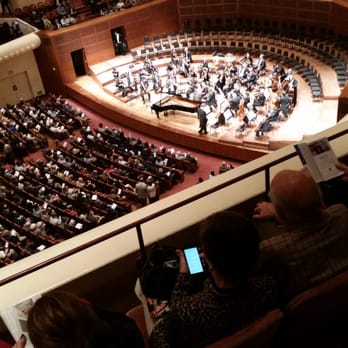Two US orchestras are heading for the mattresses over pay
NewsMusicians of the Philadelphia Orchestra last night rejected the company’s ‘best and final’ pay offer.
And Musicians of the San Francisco Symphony, out of contact for almost a year, have written to the board saying the only pay rise they have received in the past five years is … $14 neach.
Here’s the letter, leaked to slippedisc.com:
Dear Prisca and Members of the Board,
The Musicians of the San Francisco Symphony are proud to be members of
one of the world’s greatest orchestras, now in an exciting new chapter
with Music Director Esa-Pekka Salonen. We the Musicians have maintained
a 100+ year tradition of artistic excellence and the highest performance
standards, sustained by support from each of you. We recognize and
greatly appreciate the dedication you have shown for the Orchestra over
many years. Without the Musicians and Board working together to maintain
this standard, we wouldn’t be the world-class ensemble that we are
today. Thank you for this commitment.
The SFS has been hailed as a visionary institution due to innovative
series such as American Mavericks, Keeping Score, and SoundBox, with
cutting edge programming and a diversity of composers and curators. The
partnership between the SFS and Esa-Pekka Salonen has continued to
propel us into elite media projects, international collaborations with
exceptional guest artists and conductors, and innovative explorations
into new music. All of this builds upon our rich history with MTT, whose
unique vision and historic 25-year tenure resulted in 15 GRAMMYs for the
Symphony and sold-out concert tours around the world.
However, at this critical juncture, we now find our current partnership
with the Board to be under duress. We are in a unique situation with
close to 20% of our membership choosing to retire or consider employment
elsewhere. The pandemic has affected orchestras worldwide, yet the SFS
remains the only ensemble among our peer group that has not been
restored to pre-pandemic salary rates. With many other symphonic
organizations now thriving with effective marketing, restored salaries,
and returning audiences, we are forced to question why and how we have
been left behind when other Boards have successfully found ways to
fundraise and compensate their musicians fairly in alignment with the
industry standards.
A musical legacy such as ours, combined with an endowment boasting a
staggering third of a billion dollars, should result in offers that are
highly competitive within our industry. Instead, we find the current
proposals from Management at the bargaining table to be unrealistic,
unsustainable, and insulting. None of the offers we have received over
the past 10 months are close to our big-city peers such as the Los
Angeles Philharmonic and Boston Symphony. Management’s refusal to
acknowledge and discuss cost of living and inflation at our bargaining
sessions has put us in a position where we are unable to offer
competitive salary and benefits packages to prospective musicians of
international acclaim.
When weighing pay vs. cost of living in the top 7 US orchestras, SFS
ranks last, making it harder to compete for superior talent. These
offers also leave our current membership with about 16% less spending
power in a city that is known to have one of the highest housing costs
in the world. Conversely, Management and Staff have rightfully been
restored to their pre-pandemic salaries since 2021, leaving only the
musicians behind. There appears to be money for special projects, media
endeavors, and building enhancements, but when it comes to compensating
the Musicians, our current salary is only $14 higher than our
agreed-upon 2018 rate, while inflation has risen 21% since that time.
After a year of careful analysis of returning audiences, market growth,
and ticket sales which exceeded projected revenue, the question remains:
why does an organization in rich financial health demand a pay cut from
its lifeblood? We are, and have always been, the critical foundation of
this organization. We are hailed as world-class by our executives and
Board during fundraising efforts, and yet the shrinking resources
designated to the Musicians undermines our ability to remain a
first-class orchestra. Despite this and the rigors of learning and
performing new programs on a weekly basis, many of us volunteer our time
on orchestral committees in order to facilitate positive communications
among the three arms of the organization. In our capacity as
representatives and volunteers, we are often approached for ideas on how
to best market the orchestra to our Bay Area audiences, highlighting the
lack of vision and competency in leadership.
Many of us started our training before kindergarten and due to the
nature of our highly competitive field, all of us have made great
sacrifices throughout our careers in order to reach the level of an
extraordinary orchestra such as the SFS. We implore you to remember that
the Musicians are the heart and soul of this world-renowned cultural
organization. Without the Musicians, there is no San Francisco Symphony.
We remain grateful to each of you for all you have done over the years
to keep our organization healthy, and we are committed to reaching a
fair and reasonable settlement, one that reflects the generous health of
our endowment and protects our status as one of the best orchestras in
the world.
We strive to reach an agreement that acknowledges the need for salary
restoration and the extreme challenges brought on by inflation and cost
of living in the Bay Area. Acknowledging these realities by implementing
meaningful improvements into our next contract will demonstrate your
commitment to continuing the legacy of one of California’s finest
institutions. We look forward to creating exceptional music for you as
we move forward together into an even brighter future.
Respectfully,
The Musicians of the San Francisco Symphony






Comments